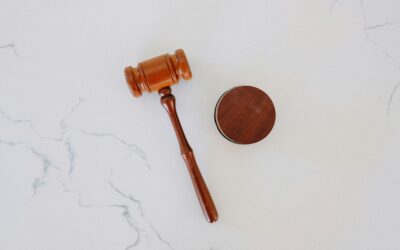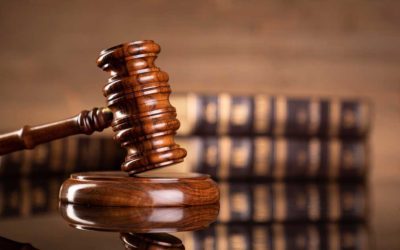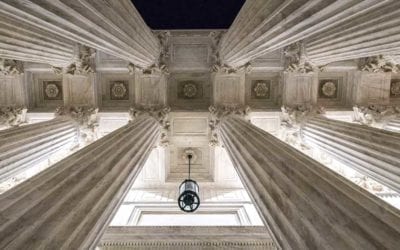Chapter 7 Personal Bankruptcy Attorney
Chapter 7 personal bankruptcy provides individuals with a fast, efficient way to eliminate most–or all–of their debts. In exchange for removing their debt, the debtor must give up certain property so that the bankruptcy trustee can sell it and use the proceeds to pay creditors.
A married couple has the option of filing a joint Chapter 7 petition, or may do so as individuals. But even when a couple chooses to file a joint petition, both members of the couple are subject to the same document filing requirements as individual Chapter 7 debtors.
For individuals who would like to retain their property and have the income necessary to work out a repayment plan with creditors, Chapter 13 is likely a better bankruptcy option than Chapter 7. In Chapter 13 bankruptcy proceedings the Bankruptcy Court will approve a plan for repaying creditors and, once the plan has been completed, the debtor’s unsecured debts will be discharged.
Additionally, not everyone qualifies for Chapter 7 bankruptcy. To qualify, an individual needs to meet the following requirements:
- Have completed an approved credit counseling course within 180 days before filing;
- Have an average monthly income less than the median income households of the same size in the state over the preceding six months or pass a means test that takes into account the debtor’s income, expenses, and family size;
- Not have filed for Chapter 7 bankruptcy in the previous eight years; and
- Not have filed for Chapter 13 bankruptcy in the last six years.
If the debtor has previously attempted to file for either Chapter 7 or Chapter 13 bankruptcy, he or she must wait 181 days before filing again. Finally, a debtor eligible to file for Chapter 7 bankruptcy may have his or her case dismissed if the Bankruptcy Court finds the debtor is attempting to defraud creditors.
One of the primary benefits of filing Chapter 7 or 13 bankruptcy is that the filing of the petition results in an automatic stay that stops most collection actions against the debtor. The automatic stay arises as an operation of law that requires no action by the Bankruptcy Court. However, there are exemptions to the stay and the court may remove it for items like property the debtor pledged as collateral.
When a Chapter 7 petition has been filed a bankruptcy estate is created. The estate becomes the temporary legal owner of the debtor’s non-exempt property, including that held by another individual if the debtor has an interest in the property. A bankruptcy trustee will be assigned to oversee the debtor’s estate and administer the bankruptcy case. The trustee’s primary responsibility is to manage the debtor’s assets. This includes collecting all of the debtor’s non-exempt assets, converting them to cash, and distributing it to the creditors. The trustee also ensures the debtor’s bankruptcy claim is not fraudulent.
Within a few weeks of the Chapter 7 filing, the trustee will schedule a meeting of creditors that must be attended by the debtor, usually accompanied by an attorney. During that meeting the debtor must answer questions under oath from both the trustee and the creditors. The debtor is required to attend the meeting and, if a married couple has filed a joint petition, they must both appear.
In addition to filing a Chapter 7 bankruptcy petition, the debtor will need to file several related documents. Those documents include bankruptcy schedules and a statement of financial affairs that includes all of the debtor’s creditors and lists the amount and nature of their claims, information on the debtor’s income, a list of the debtor’s property, and a detailed record of the debtor’s monthly living expenses.
The United States Bankruptcy Code allows individual debtors to protect some of their property from the claims of creditors by offering a number of exemptions. Also, many states have taken advantage of a provision in the law allowing them to adopt their own exemption laws in place of the federal exemptions or allow the debtor to choose between state and federal law. This means the question of whether certain property is exempt may need to be resolved using state law.
A Chapter 7 bankruptcy will generally discharge an individual’s unsecured debts, including credit card debt and medical bills. In some cases, it will also discharge secured debts backed by collateral, such as a home mortgage or lien. But if the secured debt is discharged through a Chapter 7 bankruptcy, the creditor may still have the right to repossess the debtor’s property.
Additionally, some types of unsecured debts are not usually discharged through Chapter 7 bankruptcy. Those debts include:
- Alimony;
- Child support;
- Student loans;
- Some tax debts;
- Homeowners association feels;
- Court fees and penalties; and
- Personal injury debts owed as the result of an accident that occurred while the debtor was intoxicated.
Finally, a Chapter 7 creditor may file an objection to the discharge of certain debts.
The Bankruptcy Code governs the trustee’s distribution of the estate’s property to creditors. The code places claims into six classes that are ranked in order of priority. The claims of a class with priority must be paid in full before the next class receives any payment.
After the trustee has distributed all of the debtor’s assets, the Bankruptcy Court discharges the debtor from any personal liability for any unsecured debts, but secured creditors retain some rights to seize the property serving as collateral for an underlying debt. For most personal Chapter 7 cases, the bankruptcy court will order the discharge within 60-90 days of the debtor’s meeting with creditors.
The experienced attorneys at Thomas H. Curran Associates are ready to assist individuals in filing for Chapter 7 bankruptcy. Our lawyers can help guide clients through the bankruptcy process in a caring, efficient, and effective way. A Thomas H. Curran Associates’s attorney will assist clients in filing the necessary paperwork and negotiating with creditors to ensure their debt is discharged while retaining the most assets possible.
Bankruptcy Practice Results
Recent successful cases handled by the attorneys from Thomas H. Curran Associates. Find more here »
Thomas H. Curran Associates Secures Appellate Victory as Massachusetts Supreme Judicial Court Denies Appellant’s Attempt to Shortcut Ordinary Appellate Review
Thomas H. Curran Associates recently obtained an appellate victory in the Massachusetts Supreme Judicial Court on May 26, 2023, in the...
Thomas H. Curran Associates win is Affirmed in Florida, U.S. District Court – Client Wins Attorneys Fees
Law: Federal Rule of Civil Procedure 37(a)(5) Case: Premier Capital, LLC v. Larry Bryan (AP) Underlying Bankruptcy Case: In re Larry Bryan...
The Second Circuit Affirms Bankruptcy Fraud Judgment Obtained by Thomas H. Curran Associates, Recognizing the Continuous Concealment Doctrine
Law: Continuous concealment doctrine, 11 USC § 727(a)(2)(A), In re Olivier, 819 F.2d 550 (5th Cir. 1987); In re Boyer, 328 F. App’x 711,...
Thomas H. Curran Associates prevails on barring discharge due to fraud by debtor
Thomas H. Curran Associates recently secured a victory on behalf of an institutional asset manager, where the Bankruptcy Court for the...
Thomas H. Curran Associates prevails on post-trial motions and obtains full security for $23 million dollar financial fraud judgment on behalf of chapter 7 bankruptcy trustee
On February 8, 2022, the United States District Court for the District of Connecticut (Meyer, J.) enter its Order denying defendant Gayle...
Thomas H. Curran Associates obtains appellate victory for client affirming multi-million dollar Massachusetts Superior Court Contempt Judgment against non-party to Injunction Orders
On June 21, 2021, the Massachusetts Appeals Court affirmed the civil contempt Judgment of the Suffolk Superior Court (Giles, J.) awarding...
Thomas H. Curran Associates Secures Appellate Victory as Massachusetts Supreme Judicial Court Denies Appellant’s Attempt to Shortcut Ordinary Appellate Review
Thomas H. Curran Associates recently obtained an appellate victory in the Massachusetts Supreme Judicial Court on May 26, 2023, in the...
Thomas H. Curran Associates win is Affirmed in Florida, U.S. District Court – Client Wins Attorneys Fees
Law: Federal Rule of Civil Procedure 37(a)(5) Case: Premier Capital, LLC v. Larry Bryan (AP) Underlying Bankruptcy Case: In re Larry Bryan...
The Second Circuit Affirms Bankruptcy Fraud Judgment Obtained by Thomas H. Curran Associates, Recognizing the Continuous Concealment Doctrine
Law: Continuous concealment doctrine, 11 USC § 727(a)(2)(A), In re Olivier, 819 F.2d 550 (5th Cir. 1987); In re Boyer, 328 F. App’x 711,...
Thomas H. Curran Associates prevails on barring discharge due to fraud by debtor
Thomas H. Curran Associates recently secured a victory on behalf of an institutional asset manager, where the Bankruptcy Court for the...
Thomas H. Curran Associates Secures Appellate Victory as Massachusetts Supreme Judicial Court Denies Appellant’s Attempt to Shortcut Ordinary Appellate Review
Thomas H. Curran Associates recently obtained an appellate victory in the Massachusetts Supreme Judicial Court on May 26, 2023, in the...
Thomas H. Curran Associates win is Affirmed in Florida, U.S. District Court – Client Wins Attorneys Fees
Law: Federal Rule of Civil Procedure 37(a)(5) Case: Premier Capital, LLC v. Larry Bryan (AP) Underlying Bankruptcy Case: In re Larry Bryan...
The Second Circuit Affirms Bankruptcy Fraud Judgment Obtained by Thomas H. Curran Associates, Recognizing the Continuous Concealment Doctrine
Law: Continuous concealment doctrine, 11 USC § 727(a)(2)(A), In re Olivier, 819 F.2d 550 (5th Cir. 1987); In re Boyer, 328 F. App’x 711,...
Bankruptcy Areas of Expertise
- Bankruptcy Litigation
- Bankruptcy Trustee Representation
- Avoidance & Recovery Actions
- Chapter 11 Trustees & Examiners
- Discharge Litigation
- Bankruptcy Fraud Investigations
- Cross Border Foreign Litigation
- 363 Bankruptcy Sales
- Bankruptcy Preference Actions
- Involuntary Bankruptcy
- Chapter 11/13 Plan Objections
Bankruptcy News
Evidence of Intent to ‘Hinder’ Wasn’t Sufficient to Deny Discharge, District Judge Says
In the recent case Wylie v. Miller, 22-10952 (S.D. Mich. March 29, 2024) [1] , a bankruptcy court’s decision to deny a couple’s discharge...
Creditor’s Don’t Receive Estate Assets Recovered After the Last Chapter 13 Plan Payment
In In re McCrorey, 18-00696 (Bankr. D. Idaho Jan. 26, 2024) [1] , Chief Bankruptcy Judge Noah G. Hillen of Boise, Idaho, held that if a...
Electric Scooter Company Bird files for Bankruptcy | CNBC
Bird, the popular electric scooter rental company filed for Chapter 11 bankruptcy protection in Florida Federal Court last month. Bird's...
Nearly 20-year-old Dallas restaurant chain files for Ch. 7 bankruptcy | WFAA-TV
The Dallas-based company Buzzbrews Inc. filed for Chapter 7 bankruptcy protection lasat month in the U.S. Bankruptcy Court for the...
A Refinanced Consumer Loan Might Not Be a ‘Consumer Debt,’ Ninth Circuit Says
In Centennial Bank v. Kane (In re Kane), 22-16282 (9th Cir. Nov. 15, 2023), the debtor had refinanced four preexisting loans. [1] The...
Bankruptcy Code Overrides Contrary Delaware Corporate Law, Judge Lopez Says
In In re Envision Healthcare Corp., 23-90342 (Bankr. S.D. Tx. Sec. 12, 2023), Bankruptcy Judge Christopher M. Lopez held that Delaware law...
Evidence of Intent to ‘Hinder’ Wasn’t Sufficient to Deny Discharge, District Judge Says
In the recent case Wylie v. Miller, 22-10952 (S.D. Mich. March 29, 2024) [1] , a bankruptcy court’s decision to deny a couple’s discharge...
Creditor’s Don’t Receive Estate Assets Recovered After the Last Chapter 13 Plan Payment
In In re McCrorey, 18-00696 (Bankr. D. Idaho Jan. 26, 2024) [1] , Chief Bankruptcy Judge Noah G. Hillen of Boise, Idaho, held that if a...
Electric Scooter Company Bird files for Bankruptcy | CNBC
Bird, the popular electric scooter rental company filed for Chapter 11 bankruptcy protection in Florida Federal Court last month. Bird's...
Nearly 20-year-old Dallas restaurant chain files for Ch. 7 bankruptcy | WFAA-TV
The Dallas-based company Buzzbrews Inc. filed for Chapter 7 bankruptcy protection lasat month in the U.S. Bankruptcy Court for the...
Evidence of Intent to ‘Hinder’ Wasn’t Sufficient to Deny Discharge, District Judge Says
In the recent case Wylie v. Miller, 22-10952 (S.D. Mich. March 29, 2024) [1] , a bankruptcy court’s decision to deny a couple’s discharge...
Creditor’s Don’t Receive Estate Assets Recovered After the Last Chapter 13 Plan Payment
In In re McCrorey, 18-00696 (Bankr. D. Idaho Jan. 26, 2024) [1] , Chief Bankruptcy Judge Noah G. Hillen of Boise, Idaho, held that if a...
Electric Scooter Company Bird files for Bankruptcy | CNBC
Bird, the popular electric scooter rental company filed for Chapter 11 bankruptcy protection in Florida Federal Court last month. Bird's...
Contact Us
Are You In Need of Legal Counsel for a Bankruptcy Matter, Business Transaction, or Commercial Litigation?
Contact our team today.
Call us at (617) 207-8670 or use the quick contact form below.
Austin Office
111 Congress Avenue
Suite 500
Austin, TX 78701
Boston Office
Ten Post Office Square
Suite 800 South
Boston, MA 02109
New York Office
1740 Broadway
15th Floor
New York, NY 10019
London Office
The Leadenhall Building
Level 30
122 Leadenhall Street
London EC3V 4AB
Tags: chapter 7 personal bankruptcy attorney personal bankruptcy chapter 7 filing personal bankruptcy chapter 7





